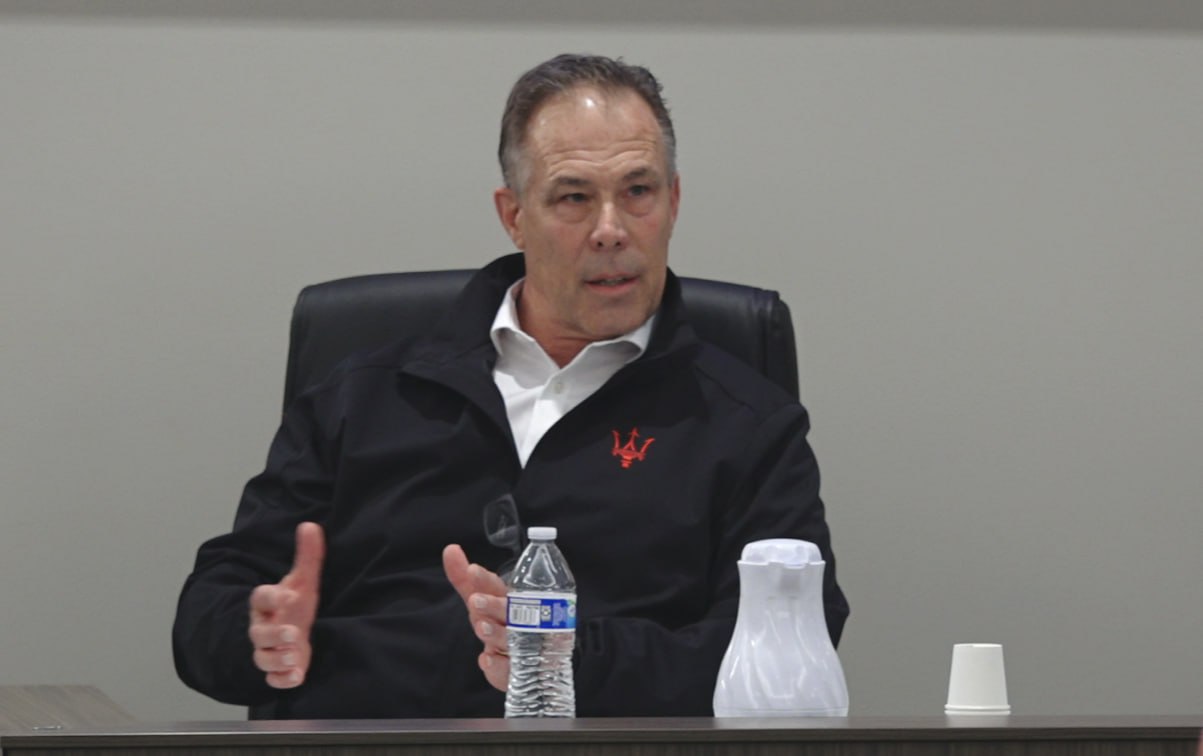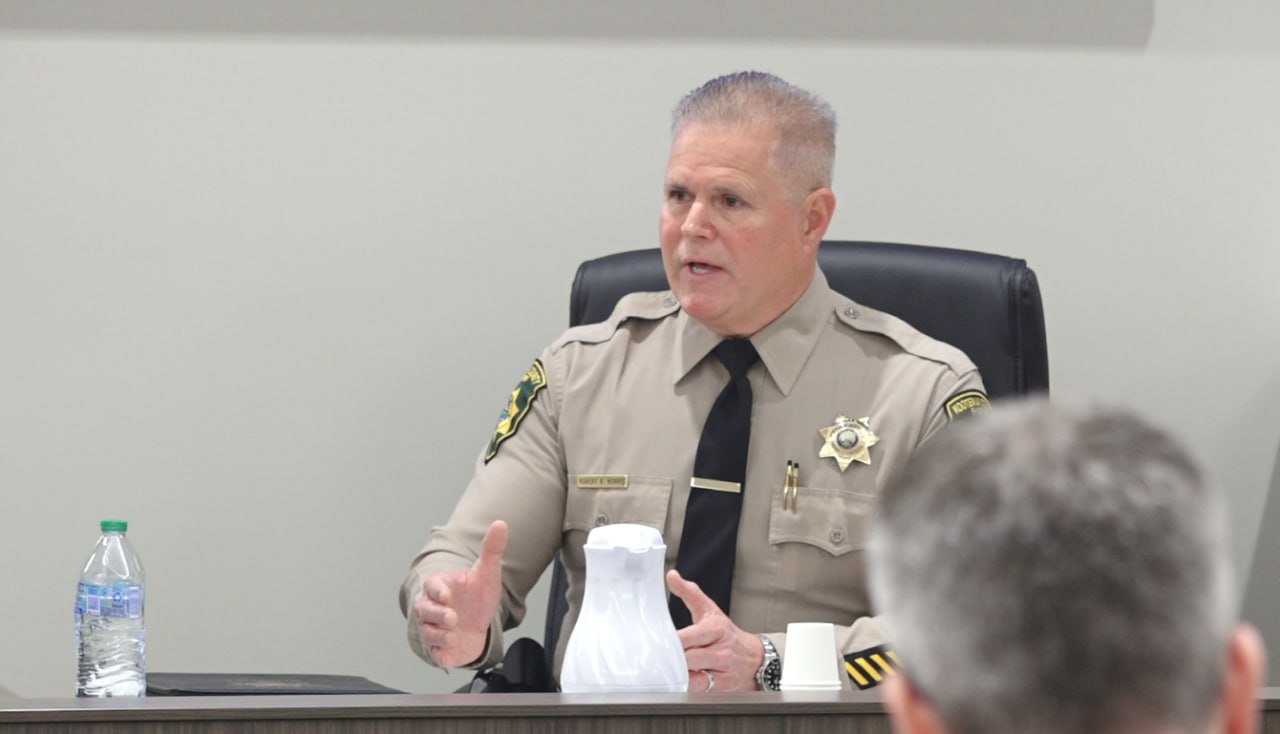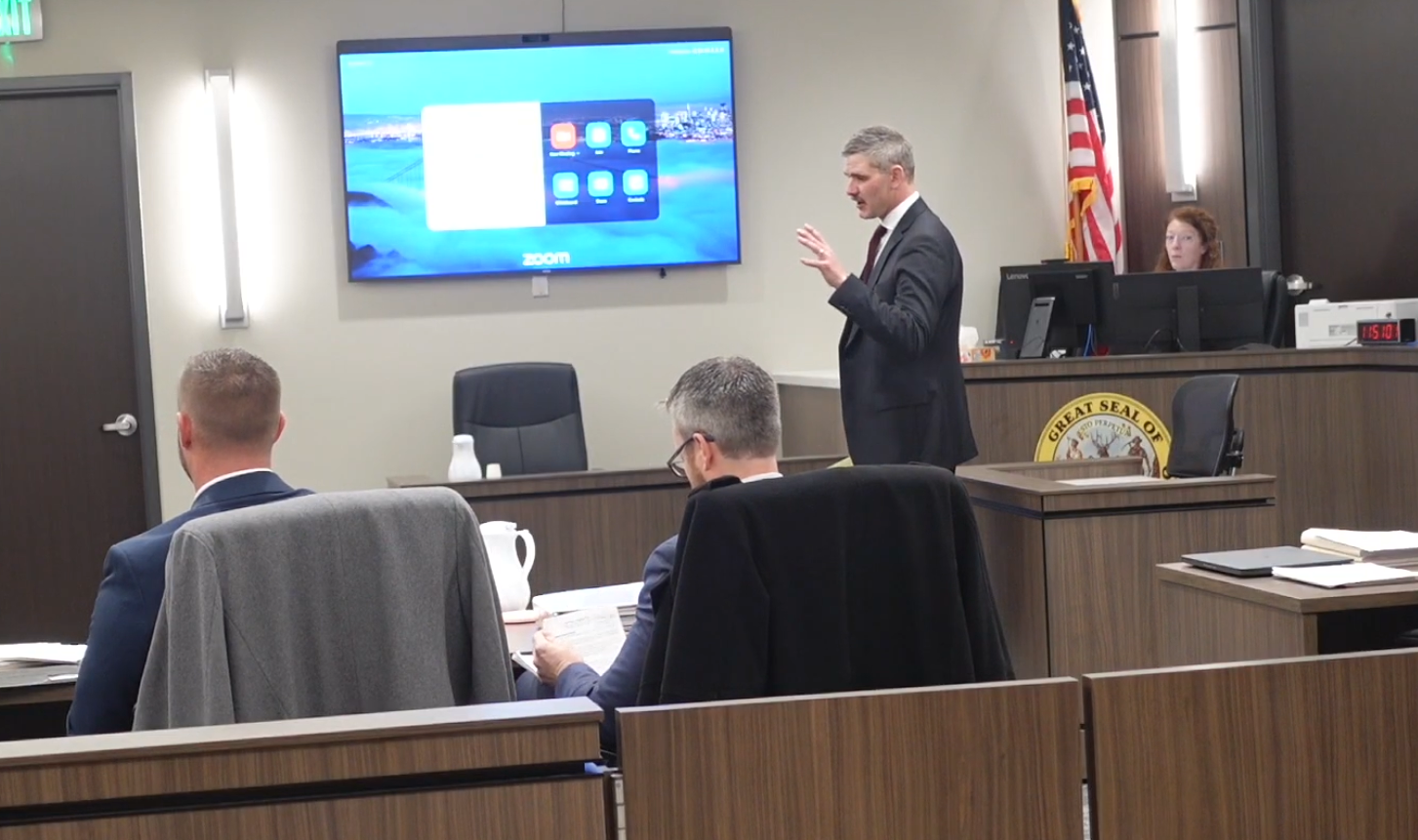Ranked-choice voting is causing major waves throughout the Idaho political scene. Reclaim Idaho, which brought us Medicaid expansion in 2018 that now sits at a $4.1 billion annual price tag, has launched a new initiative to fundamentally change the way Idaho conducts its elections. The group, co-founded by Sandpoint native Luke Mayville, calls its project the Open Primaries Initiative, and if it gathers enough signatures, this initiative will be voted on by the public in the November 2024 General Election.
The Open Primaries label seems confusing, as the method of ranked-choice voting actually eliminates private party primaries and general elections as we know them. First, we will look into how elections are currently conducted in Idaho, then we’ll apply how Reclaim Idaho’s Open Primaries Initiative would transform Idaho elections.
Idaho currently has four recognized political parties, Republican, Democratic, Libertarian, and Constitution. When citizens register to vote, they select one of the political parties to affiliate with, or they decide to remain unaffiliated. By affiliating with a specific party, the voter is claiming association with a private organization, and is granted the right to vote in the selection of that party’s nominee during the process we refer to as Primary Elections. Each of the four political parties in Idaho has its own rules which govern who is eligible to vote on its private party nomination ballot (aka Primary Election). Idaho’s Democrat party has rules that allow voters of any affiliation to vote in their primary, whereas Idaho’s Republican party has rules which limit voting to only those who have affiliated themselves with the Republican Party. The Democrat version is referred to as an Open Primary, and the Republican version is referred to as a Closed Primary.
In Idaho, voters go to the polls in May in even-numbered years to nominate their candidates using private political party ballots. This is called the May Primary, and if a voter has affiliated as a Republican, they vote on a ballot that only has candidates who are themselves Republicans. At the same time, the Democrat, Libertarian, and Constitutional parties have private party ballots that affiliated voters use to nominate a candidate. The winners from the individual private party May Primary ballots proceed to the General Election that takes place in November. This process allows each affiliated voter a voice in selecting the party’s candidate for the General Election in which all voters, regardless of party affiliation, have the same ballot that includes candidates from all political parties.
In Idaho, only county, state, and congressional level elected offices have the primary to general election process. Which means candidates who seek their party’s nomination for county and state level positions must go through two election cycles, the private party primary in May, and the general election in November. At the county level, this is where voters are given the chance to vote twice, once in May for their party’s nominee and once in November to elect the person who will serve the public in the offices of Commissioner, Sheriff, Prosecutor, Treasurer, Clerk, Assessor, and Coroner. At the state level, the offices of Legislative District Representatives and Senators, as well as the executive offices of Governor, Lt. Governor, Attorney General, Secretary of State, Treasurer, Controller, and Superintendent of Public Education all use the primary to general process. As does the Congressional races for US Congress and US Senate. The Presidential race functions slightly differently, with a caucus system that is not directly governed by Idaho’s May Primary process.
Now, let’s cover another type of ballot, known as nonpartisan ballots. The majority of all elected offices in Kootenai County are filled using a nonpartisan election, which utilizes a ballot that doesn’t require a candidate to affiliate with a political party and only requires one round of voting to elect a candidate into office. Nonpartisan elections take place every year in May and November. To simplify the election process in even numbered years, nonpartisan ballots are combined with private party primary ballots in May and general election ballots in November. Voters elect mayors, city councils, justices, library trustees, school board trustees, fire district commissioners, water and soil board supervisors, hospital trustees, and highway district commissioners using nonpartisan ballots.
It’s important to note that a candidate’s political leanings are not disclosed to the voter on a nonpartisan ballot due to the fact that party affiliation is not denoted next to their name on the ballot, hence the phrase “nonpartisan.” In reality no candidate is nonpartisan. Most individuals who seek elected office are affiliated with a political party and hold political leanings associated with the party’s platform. They implement policies based on their party’s platform, and they direct public funds toward things that advance their political ideals.
Below are sample ballots from the last even numbered year election in 2022. This example shows how the Republican Primary Election Ballot presented for voters in Idaho’s Legislative District 3. The following example shows the General Election Ballot for Idaho’s Legislative District 3. Notice the winning candidates from the primary progressed to the general.
The Open Primary Initiative would upend Idaho’s primary and general election process. As previously mentioned, the initiative is being circulated by Reclaim Idaho, a Political Action Committee that was founded by progressive activists who promote Democratic political ideals, advance Democratic social policies, and fund Democratic campaigns. The election process that Reclaim Idaho is trying to implement in Idaho is better known as ranked-choice voting, which was banned in Idaho’s 2023 Legislative Session via House Bill 179. The legislation was sponsored by Representative Dale Hawkins in the House, and Senator Glenneda Zuiderveld in the Senate. Only four Republican legislators broke from the majority who overwhelmingly voted for HB179 to protect Idaho’s current election process because they understand the dangers associated with ranked-choice voting. The dissenting four were Rep. Cheatum, Rep. Garner, Rep. Manwarning, and Rep Nelson.
“Ranked-Choice Voting is the epitome of tyranny of the majority,” stated Representative Vito Barbieri. “Put another way, pure democracy. The Party system is designed to allow those with similar policy priorities to formally associate, as guaranteed by the First Amendment to our Constitution. In Idaho, at least, true Republicans cherish this right. Ranked-Choice Voting strips all of us of our right to associate.”
In a nutshell, ranked-choice voting would end private political party nominations, creating an election system that holds a spring time “open primary” to select a slate of names to advance to a second round of voting in a fall time “final election.” Party affiliation becomes irrelevant as unaffiliated voters, as well as all Republican, Democratic, Libertarian, and Constitution affiliated voters, vote using the same Open Primary Ballot. Voters are required to rank all candidates by preference. A candidate must receive the majority of first-ranked votes to be declared the winner. If no candidate claims a majority of first-ranked votes after the ballots are tabulated, then the candidate with the least amount of first-ranked votes is eliminated. This elimination moves the voter’s second-ranked candidate into their first-ranked slot and another round of ballot tabulation is conducted. If there still isn’t a majority, the process of elimination and replacement continues until one candidate receives the majority of first-ranked votes.
The entire ranked-choice voting process is rife with voter confusion and distrust, as the system allows for their votes to be altered to advance candidates that did not receive their top preference. There is also a substantial risk for error while tabulating and re-structuring the candidates’ ranking for additional ballot tabulations in the search of a candidate with a majority. The ability to audit the results of an election becomes much more difficult when voters’ preferences are changed and multiple rounds are needed to determine a winner.
It is no surprise that Idaho Democrats are pushing to overturn the will of the Idaho people, whose representative majority is Republican and overwhelmingly banned ranked-choice voting earlier this year. What is surprising, and sounding alarms across the state, are the growing list of affiliated Republicans who have joined Idaho Democrats. In a recent email from Reclaim Idaho’s co-founder Luke Mayville, praise is given to an extensive list of notable Republicans who have joined the group’s efforts. Per Mayville’s email, the individuals are part of a new group called Republicans for Open Primaries, and the names listed below are those from North Idaho who have signed the Open Primary Initiative, which is a part of the progressive agenda to fundamentally change Idaho:
- Jack Riggs, former Idaho Senator and former Lt. Governor of Idaho, Cd’A
- Sandy Patano, former state director for US Senator Craig and former Vice-Chair of the IDGOP, Cd’A
- Christa Hazel, former Coeur d’Alene School Board Trustee
- Marge Chadderdon, former Idaho Representative, Cd’A
- Chris Fillios, former Kootenai County Commissioner
- Leonard Crosby, Vietnam veteran, Post Falls
- Deborah Rose, writer and educator, Cd’A
- Gary Suppiger, owner of Panhandle Forest Products, Cocolalla
- Greg and Ruth Gfeller, founding members of North Idaho Republicans
- Mary Crosby, founding member of North Idaho Republicans
- John Barlow, retired Hagadone Corporate Executive
- Terry and Diane Eastman, Kootenai restaurateurs
- Barbara Schriber, artist and master potter, traditional Republican, Cd’A
- Luke and Deb Russell, founding members of North Idaho Republicans
- Ralph Nelson, Certified Public Accountant, Cd’A
- Tom Torgerson, Cd’A Realtor and founder of North Idaho Republicans
- Peter Erbland, Cd’A Lawyer, former Deputy Attorney General
- Elmer “Rick” Currie, former Kootenai County Commissioner
- Jim Colemen, Cd’A Civil Engineer, past member of Idaho Transportation board
- Russ McLain, long-time Republican, Cd’A
- Michelle Lippert, Adjunct Professor at North Idaho College, Post Falls
- Evalyn Adams, former Kootenai County Republican
- Lonne and Laura Jordahl, founding members of North Idaho Republicans
- Ed Morse, businessman and former Idaho Representative, Hayden
- John Goedde, former Idaho Senator, Cd’A
- Terri White Goedde, founding member of North Idaho Republicans
- Robbi Berg, Certified Public Accountant, Hayden
- John Adams, Navy veteran and owner of Coeur d’Alene Tractor
- John Young, President of Young Construction, Cd’A
- Marie Widmyer, owner of Marie’s Boutique and Marmalade, Cd’A
- Steve Widmyer, former Mayor of Coeur d’Alene
- Steve Roberge, former Mayor of Dalton Gardens
- Lora Whalen, former Director of Panhandle Health Department
- Jim Faucher, Coeur d’Alene fundraising consultant
- Pierce Clegg, former Kootenai County Sheriff
- Hank and Betsy Martin, Coeur d’Alene Rotarians
- Lois Johnson, founding member of North Idaho Republicans, Cd’A
Readers can track who joins the Republicans for Open Primaries group and their progressive push for ranked-choice voting at Endorsements for Reclaim Idaho’s Initiative.
The Idaho GOP, led by Chairwoman Dorothy Moon, has launched a campaign called “Decline to Sign” which urges Idahoans not to sign Reclaim Idaho’s initiative.
Idaho is not the only state facing the push for ranked-choice voting. To help American citizens from all states better understand the process, The Heritage Foundation teamed up with the Honest Elections Project and Save Our States to create a short informative tutorial. Idaho voters deserve a full understanding of the issues surrounding ranked-choice voting and the consequences of implementing such a system.







